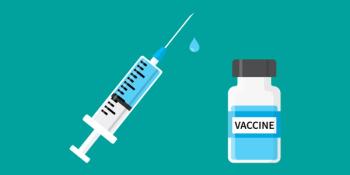
Breastfeeding may offer early protection against ear infections
Breastfeeding is already known to offer a number of health and developmental benefits. Now, an Australian study is adding ear infection prevention to that list.
Breastfeeding is already known to offer a number of health and developmental benefits. Now, an
The study found that predominantly breastfeeding an infant for at least 6 months offered significant protection against the development of otitis media (OM) until at least age 3 years.
The study followed more than 2200 children whose mothers participated in the West Australian Pregnancy Cohort (Raine) Study, investigating incidence of OM at age 6 years. This data was compared with OM incidence in the same group at age 3 years. Investigators compared incidence of OM based on the duration of predominant and partial breastfeeding.
The researchers found a significant association between predominant breastfeeding and OM up to age 3 years, although benefits seemed to wane by age 6 years. A subset of 1344 children at the 6-year follow-up were found to have OM, and researchers were able to analyze early feeding practices in 1283 of those children. Of those children with OM at age 6 years, 29.4% had also had an OM diagnosis at the 3-year follow-up.
According to the study results, 142 children who had not yet received other milk products besides breastmilk had OM at 3 years. Of the children who had received other milk products by age 6 months, 435 were found to have OM at age 3 years. By age 6 years, 50 of the children in the breastfed group had OM compared with 93 in the group that received other milk products. There was little difference among the children who stopped breastfeeding at age 6 months or later, according to the report.
Researchers note that children who were predominantly breastfed for at least 6 months had a significantly lower incidence of OM at age 3 years, but differences by early feeding type faded by age 6 years. Still, researchers say the benefits of breastfeeding in relation to OM would occur at a crucial time, even if they are short lived.
“This indicates that the protective profile of breastfeeding may not extend beyond early childhood,” the study notes. “However, if the critical period of language development is said to occur in the first 3 years of life, then the protection offered by breastfeeding could be argued to occur during the time period of greatest need.”
Chris Brennan-Jones, PhD, a senior research fellow and pediatric audiologist at the Princess Margaret Hospital for Children, Subiaco, Western Australia, and one of the authors of the report, says his research shows that breastfeeding for at least 6 months reduces a child’s risk of suffering from recurrent OM for at least awhile.
Whereas the exact mechanisms are unclear, Brennan-Jones says there are a few theories about why breastfeeding helps. The first is that the immunoglobulin A (IgA) found in breast milk is protective against the infectious agents that cause OM. The second theory is that the action of breastfeeding opens the eustachian tube, preventing a buildup of serous fluid in the middle ear-a common feature of OM. Finally, there may be some benefit to the position of the infant during breastfeeding-supine versus semi-upright. In this final theory, benefits could also occur in bottlefed infants if positioning were changed, he says.
“Otitis media is associated with a 15- to 40-decibel fluctuating hearing loss that can adversely affect child learning and behavioral development. This study highlights, at a population level, the important impact that breastfeeding can have on reducing the impact and severity of OM in children who are breastfed for 6 months,” Brennan-Jones says. “This study adds weight to the current advice around exclusive or predominate breastfeeding to protect against infection and improve later developmental outcomes.”
Newsletter
Access practical, evidence-based guidance to support better care for our youngest patients. Join our email list for the latest clinical updates.








